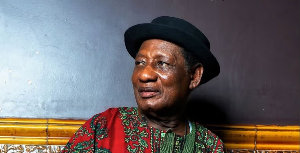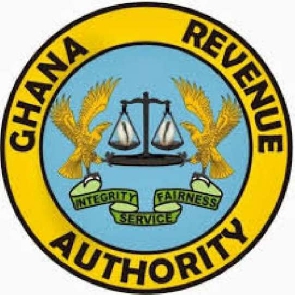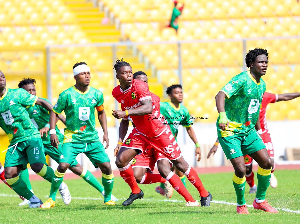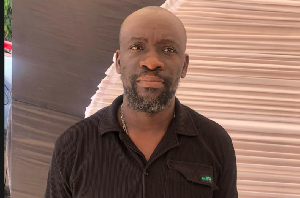A Kumasi-based private legal practitioner, Kwasi Afrifa Esq, has clashed with the Ghana Revenue Authority (GRA) over tax assessment.
As a result, the state revenue collector has been hauled before a Kumasi High Court (Human Rights Division) for the enforcement of the applicant’s fundamental human rights.
Lawyer Afrifa is seeking the enforcement of his fundamental human rights, following GRA’s refusal to issue him with a Tax Clearance Certificate, saying the position of the GRA is unreasonable and irrational.
The basis of the motion is Articles 23, 33 and 296 of the 1992 Constitution and contests the provision of Section 42(5) of the Revenue Administration Act 915 of 2016 which forbids the GRA from entertaining an objection against a tax decision unless the person objecting has paid 30% of the tax in dispute.
Lawyer Afrifa contends that it is inconsistent with the right to administrative justice guaranteed under Article 33 of the 1992 Constitution.
He is also seeking a declaration that upon a true and proper interpretation of Article 23 of the Constitution, Section 42(5) of Act 915 is inconsistent with the Constitution and, therefore, unconstitutional.
The applicant also sought an order of mandamus to compel the GRA to issue him with a Tax Clearance Certificate as requested, and general damages for the violation of his fundamental human rights.
The applicant avers that he is a registered taxpayer, and that on June 6, 2017, the GRA informed him about his tax obligations for the period between January 2010 and April 2017 amounting to GH¢66,932.58.
Lawyer Afrifa stated in a motion filed before the court on August 8, 2019 that he objected to the said tax assessment, on the grounds that it (GRA) did not take his input into account in arriving at the stated assessment.
Following this, the GRA demanded that the lawyer make a payment of GH¢20,079.77 within seven days as a precondition for the determination of his objection, failure of which the GRA would proceed to enforce the collection of the GH¢66,932.58, as assessed by the revenue authority.
The applicant said per another letter, he informed the GRA that he had been suspended from legal practice by the General Legal Council (GLC) with documentary evidence, and requested that tax assessment on him for the period of his suspension, effective July 27, 2017, be suspended.
He said the respondent further demanded that the applicant pay his personal Income Tax assessed by the GRA from the examination of his financial statements from 2012 to 2016 amounting to GH¢342,432.49, including penalties of GH¢8,034, within 30 days from the date of notice or face sanctions under the Act.
According to the applicant, he explained in writing to the GRA that the said assessment was excessive and unjustifiable having regard to his true income level, but the GRA insisted that he pay all outstanding taxes, including 30% of the tax in dispute as a condition for addressing his objection.
Lawyer Afrifa also argued that the GRA was also informed that the accountant of his law firm had been instructed to effect full payment of all outstanding personal income tax of GH¢17,665.07 for the period 2012 to 2016, and duly receipted by the Authority.
As a result, the applicant applied for a Tax Clearance certificate for the purpose of applying for a visa to travel abroad for medical attention, but the GRA demanded payment of GH¢85,265.68 described by the GRA as tax-not-in dispute within seven days, to which he reminded the GRA of his suspension from legal practice, and, therefore, earned no income for 2017 and 2018.
He said he later paid GH¢40,270 as part payment of the assessed sum of GH¢85,264.68, including the sum of GH¢8,054, and went ahead to make a further payment of GH¢30,000, thus fully discharging his tax obligation within the seven days as demanded by the GRA.
The applicant said the GRA further made a fresh assessment demanding GH¢44,345,65 after he indicated to the GRA that he urgently needed his Tax Clearance certificate, to which fresh demand he objected and expressed his dissatisfaction with the Authority’s delay in the issuance of the Tax Clearance Certificate.
He stated that even though the GRA, this time, informed him that his request was being processed, it (GRA) also requested for further information regarding his account and medical and electricity expenses to enable the revenue collector properly assess his tax liability for the years 2012 to 2016.
Lawyer Afrifa stated that per a letter dated July 26, 2019, the GRA informed him quite surprisingly that he did not qualify for the Tax Clearance Certificate, explained in a reason, among others, that he had not complied with the provisions of section 42(5) of Act 915,
But Lawyer Afrifa argues that the requirement of section 42(5) is unconstitutional and a gross violation of his fundamental human rights, because they are inconsistent with administrative justice guaranteed by Article 23 of the 1992 Constitution.
Meanwhile, Mr. Isaac Kofi Minneaux Quaye, a Senior Tax Officer of the Domestic Tax Division of the GRA, in an affidavit in opposition to the lawyer’s claims, said the assessment in dispute was done by a Special Task Force, based on the applicant’s own records from 2012 to 2017, and therefore, not conjectural but the true income level of the applicant.
He admitted that the applicant raised an objection to the tax assessment, upon which the GRA asked him to pay 30% in line with section 42 (2b) of Act 915.
The respondent admitted that the applicant made payments which were duly receipted by the GRA, but explained that a Tax Clearance Certificate could be issued by the Commission General of GRA only when the Commissioner-General is satisfied that the applicant has been issued with a taxpayer identification number which is specified in the application, and the applicant has no outstanding tax returns or other obligations under the tax law.
Mr. Quaye said therefore that the applicant’s rights were not being abused by the GRA, which is doing its mandated duty of ensuring that the correct taxes needed to build the nation are paid at all times.
The deponent thus directed the applicant to proceed to the Supreme Court for a declaration to be made that the Act is inconsistent with or in contravention of a provision of the Constitution.
The Human Rights Court, presided over by Justice Frederick Tetteh, is yet to give its ruling on the application.
Regional News of Sunday, 10 November 2019
Source: thechronicle.com.gh
Lawyer drags GRA to Human Rights Court for enforcement of his fundamental human rights
Entertainment












